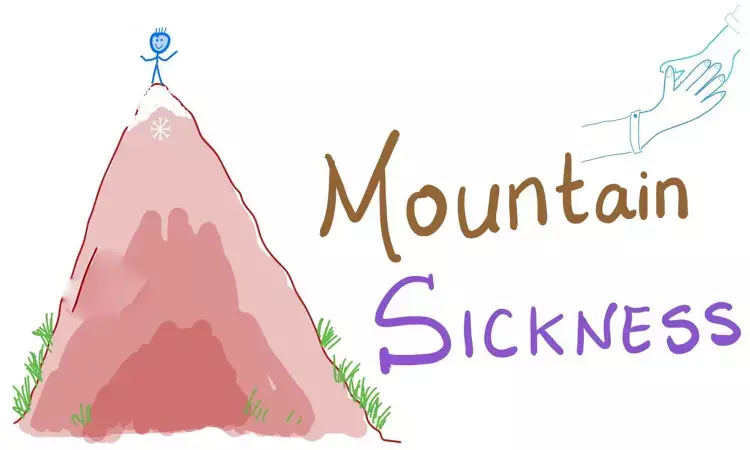- Home
- Medical news & Guidelines
- Anesthesiology
- Cardiology and CTVS
- Critical Care
- Dentistry
- Dermatology
- Diabetes and Endocrinology
- ENT
- Gastroenterology
- Medicine
- Nephrology
- Neurology
- Obstretics-Gynaecology
- Oncology
- Ophthalmology
- Orthopaedics
- Pediatrics-Neonatology
- Psychiatry
- Pulmonology
- Radiology
- Surgery
- Urology
- Laboratory Medicine
- Diet
- Nursing
- Paramedical
- Physiotherapy
- Health news
- Fact Check
- Bone Health Fact Check
- Brain Health Fact Check
- Cancer Related Fact Check
- Child Care Fact Check
- Dental and oral health fact check
- Diabetes and metabolic health fact check
- Diet and Nutrition Fact Check
- Eye and ENT Care Fact Check
- Fitness fact check
- Gut health fact check
- Heart health fact check
- Kidney health fact check
- Medical education fact check
- Men's health fact check
- Respiratory fact check
- Skin and hair care fact check
- Vaccine and Immunization fact check
- Women's health fact check
- AYUSH
- State News
- Andaman and Nicobar Islands
- Andhra Pradesh
- Arunachal Pradesh
- Assam
- Bihar
- Chandigarh
- Chattisgarh
- Dadra and Nagar Haveli
- Daman and Diu
- Delhi
- Goa
- Gujarat
- Haryana
- Himachal Pradesh
- Jammu & Kashmir
- Jharkhand
- Karnataka
- Kerala
- Ladakh
- Lakshadweep
- Madhya Pradesh
- Maharashtra
- Manipur
- Meghalaya
- Mizoram
- Nagaland
- Odisha
- Puducherry
- Punjab
- Rajasthan
- Sikkim
- Tamil Nadu
- Telangana
- Tripura
- Uttar Pradesh
- Uttrakhand
- West Bengal
- Medical Education
- Industry
Lower dose of Acetazolamide not effective for Mountain Sickness, finds study

Acetazolamide is a carbonic anhydrase inhibitor commonly prescribed for Acute mountain sickness. It is generally prescribed at 125mg twice a day dosing on the day or an evening prior to the ascent.
Lower doses of Acetazolamide of 62.5mg twice a day failed to demonstrate equal effectiveness as 125mg twice a day dose for the prevention of acute mountain sickness, according to a recent trial published in the journal ' The American Journal of Medicine' 2020.
The trial was carried out in 2019 at California. The study was a double-blind, randomized, controlled noninferiority trial. Healthy, eligible participants were recruited and were given acetazolamide twice daily starting the evening prior to ascent from 1240 m (4100 ft) to 3810 m (12,570 ft) over 4 hours. A total of 106 participants were analysed in the trial. Participants were randomly divided into 2 groups of 1:1 with 62.5mg twice a day dosing given to 1 group and standard 125mg twice a day given to another group.
The primary outcome of measurements was acute mountain sickness incidence which included headache, Lake Louise Questionnaire ≥3, and any other symptom.
Out of 106 participants who were analysed, 51 (48%) were randomized to 125 mg group and 55 (52%) to 62.5 mg group. They had a combined acute mountain sickness incidence of 53 (50%) and mean severity of 3 (± 2.1).
Key findings of the study were:
• The 62.5-mg group failed to fall within the prespecified 26% noninferiority margin for acute mountain sickness incidence (62.5 mg = 30 [55%] vs 125 mg = 23 [45%].
• Participants in the 62.5-mg group had a higher risk and moderate risk of acute mountain sickness and number need to harm was 9.
• Participants in the 125mg group had a number to treat of 4.8
• Increased acute mountain sickness incidence and symptom severity corresponded to lower weight-based and body mass index dosing, with similar side effects between groups.
By this study, the researchers concluded that Acetazolamide 62.5 mg twice daily failed to demonstrate equal effectiveness to 125 mg twice daily for prevention of acute mountain sickness. With increased risk and no demonstrable symptomatic or physiologic benefits, acetazolamide 62.5 mg twice daily should not be recommended for acute mountain sickness prevention.
To read more about the study, Click the following link:
BDS, MDS
Dr.Niharika Harsha B (BDS,MDS) completed her BDS from Govt Dental College, Hyderabad and MDS from Dr.NTR University of health sciences(Now Kaloji Rao University). She has 4 years of private dental practice and worked for 2 years as Consultant Oral Radiologist at a Dental Imaging Centre in Hyderabad. She worked as Research Assistant and scientific writer in the development of Oral Anti cancer screening device with her seniors. She has a deep intriguing wish in writing highly engaging, captivating and informative medical content for a wider audience. She can be contacted at editorial@medicaldialogues.in.
Dr Kamal Kant Kohli-MBBS, DTCD- a chest specialist with more than 30 years of practice and a flair for writing clinical articles, Dr Kamal Kant Kohli joined Medical Dialogues as a Chief Editor of Medical News. Besides writing articles, as an editor, he proofreads and verifies all the medical content published on Medical Dialogues including those coming from journals, studies,medical conferences,guidelines etc. Email: drkohli@medicaldialogues.in. Contact no. 011-43720751


